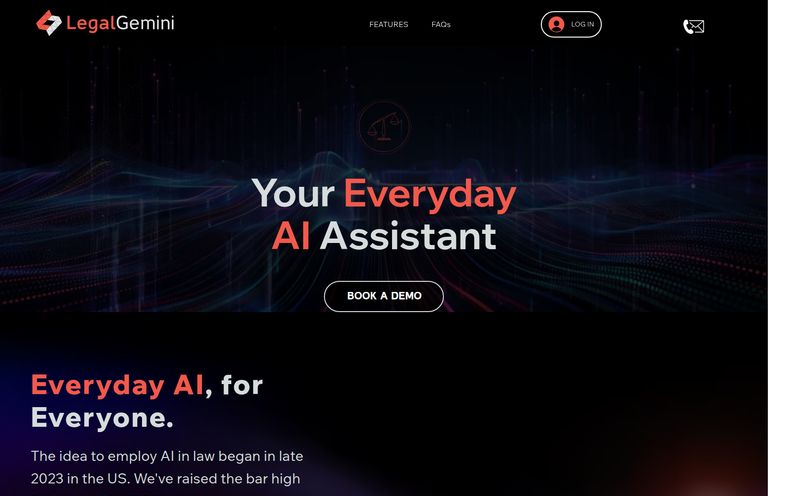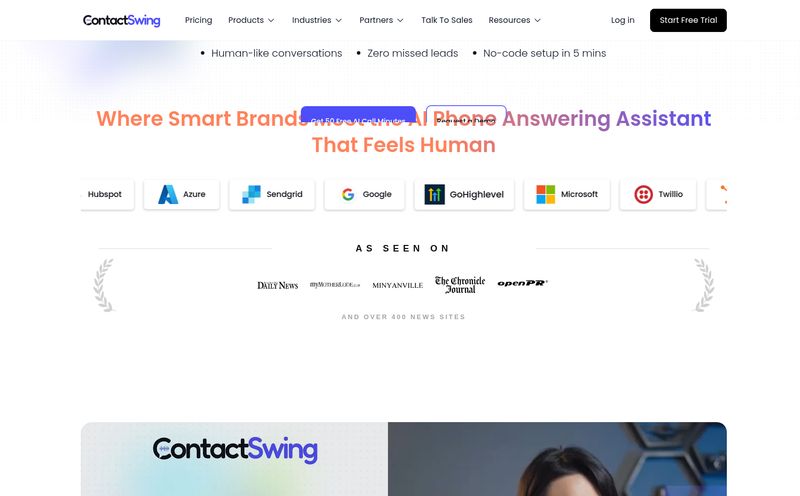We've all been there. You're deep in the zone, crafting the perfect design in Figma or wrestling with a monster of a spreadsheet in Numbers. You need to do that one thing—you know, the thing you did three months ago but whose name or location is now a complete mystery. Your creative flow grinds to a halt. You sigh, pop open a new browser tab, and begin the ritualistic search, sacrificing your focus to the gods of Google.
It’s infuriating. It’s a productivity killer. And for years, I’ve just accepted it as the cost of using complex software. But what if it didn't have to be that way? What if you had a little genius sitting on your shoulder, able to look at your screen and tell you exactly what to do?
Well, a new tool called MacGaiver just landed on my radar, and it promises to be exactly that. And yes, the name is just as clever as the concept.
So, What Is This MacGaiver Thing, Really?
Forget your standard AI chatbots that live in a browser window. MacGaiver is different. It's a native macOS assistant that uses computer vision to understand what you're looking at, in any application, and answer your questions about it. Think of it less like asking a librarian for a book, and more like having a seasoned expert standing right behind you, pointing at the screen and saying, “Oh, you just need to click that button right there.”
The whole thing is powered by a simple keyboard shortcut. You get stuck, you press the magic keys, and a little box pops up. You type your question, like “how do I add a drop shadow to this layer?” and it analyzes a screenshot of your current window to give you a contextual answer. It’s all hooked into OpenAI's pretty incredible Vision API, the same tech that lets AI understand images. It’s brilliant in its simplicity.

Visit MacGaiver
My First Impressions and How It Actually Works
Getting started feels almost too simple. There's no big, bloated application to learn. You just summon it when you need it. The real magic—and I don't use that word lightly—is in its ability to save you from context switching. That's the real enemy of deep work, right? The mental gymnastics of leaving your project, translating your problem into search terms, sifting through forum posts from 2012, and then trying to re-engage your brain on the task at hand.
MacGaiver aims to short-circuit that entire frustrating process. It's like having the ultimate troubleshooter on call, ready to jerry-rig a solution for you with nothing but a screenshot and a bit of AI ingenuity. Just like its namesake would with a paperclip and some duct tape.
The Good, The Bad, and The AI
No tool is perfect, especially not a new one. After playing around with it, here's my honest take.
The Stuff That's Genuinely Awesome
The biggest win, hands down, is the preservation of your workflow. Not having to leave your app is a massive advantage. I’ve always felt that the best tools are the ones that feel invisible, and MacGaiver comes pretty darn close. It’s quick, it’s activated by a simple shortcut, and it uses AI to understand your problem in context. This isn't just a generic helper; it's a helper that knows you're in DaVinci Resolve and not Microsoft Word. That's a huge deal.
Where It Might Falter a Bit
Of course, there are a few things to keep in mind. First, it needs an internet connection to phone home to OpenAI's servers. No surprise there, but if you're working on a plane, you're on your own. Second, its usefulness is directly tied to the accuracy of the underlying AI model. We all know AI can sometimes... get creative with the facts. I wouldn't be surprised if it occasionally gives a slightly off-base answer, so a bit of common sense is still required. Lastly, for super-niche or highly specialized industrial software, it might not have all the answers. It’s a generalist, a brilliant one, but not an omniscient wizard. Yet.
Who Is This Tool Actually For?
I can see a few groups of people falling head over heels for this.
- Creatives and Designers: Navigating the endless menus of Adobe Creative Suite, Figma, or Sketch can be a chore. This could be a lifesaver.
- Developers: Stuck trying to find a specific function in a new IDE? Ask MacGaiver.
- Students: Learning new academic software for a course without having to constantly bother the professor.
- Basically, any Mac user: Honestly, even for just finding that one obscure setting in System Preferences that Apple moved for teh third time... this could be worth it.
The Big Question: What's the Price Tag?
This is the interesting part. As of right now, there's no public pricing information. The website is clean and simple, focusing on the functionality. This could mean a few things. It might be in a free beta period, or the developer might be planning a one-time purchase model, which would be amazing. Another common approach for tools like this is to require users to plug in their own OpenAI API key, so you'd be paying for your own usage. Personally, I'm hoping for a simple, one-time fee. But we’ll have to wait and see.
Frequently Asked Questions about MacGaiver
1. Does MacGaiver work on Windows or Linux?
Nope, as the name implies, it's a macOS-exclusive tool for now. It's built specifically for the Mac ecosystem.
2. Will I need my own OpenAI API key?
The website doesn't specify, but this is a very common model for independent AI tools. It keeps the developer's costs down and gives users control over their usage. So, it's a strong possibility.
3. Is MacGaiver safe to use? Does it record my screen?
While I don't have inside knowledge, tools like this typically work by taking a temporary, one-time screenshot only when you activate them. The image is sent for analysis and then discarded. It’s highly unlikely that it’s continuously recording your screen, as that would be a major privacy and performance issue.
4. How is this better than just asking ChatGPT?
The key is context. ChatGPT has no idea what's on your screen. You have to describe your problem to it. MacGaiver sees your problem, allowing it to give much more specific and relevant help without you having to type out a novel.
5. What happens if it gives me a wrong answer?
This is a possibility with any AI. It’s best to treat the advice as a strong suggestion from a very knowledgeable friend, not as infallible gospel. If something sounds weird, a quick Google search to confirm is always a good idea.
My Final Verdict: Should You Download MacGaiver?
So, is MacGaiver the next must-have utility for your Mac? I think it has a real shot. The concept is rock-solid and solves a problem that literally everyone who uses a computer experiences. It's a clever, focused, and incredibly promising application of AI that goes beyond just generating text or images.
It represents a move toward a more integrated and helpful form of computing, where help finds you right where you are. Even with its potential limitations, the sheer convenience it offers is a massive draw. I'm genuinely excited to see how this tool develops and becomes even more capable over time. For now, it's a definite download for anyone who values their focus and is tired of derailing their own train of thought. Give it a try; you might be surprised how often you find yourself reaching for that shortcut.
Reference and Sources
- MacGaiver Official Website: [A link to the official MacGaiver homepage would go here]
- OpenAI's Vision API Information: OpenAI DevDay Announcements
- OpenAI API Key Management: OpenAI Platform



